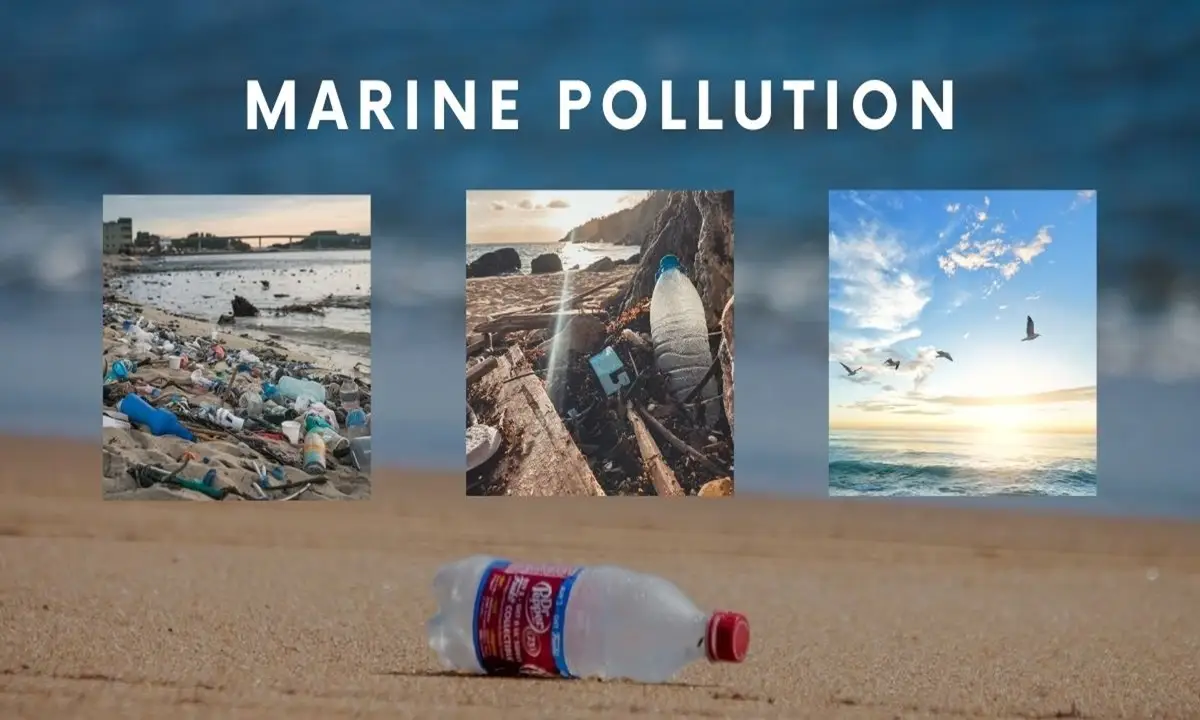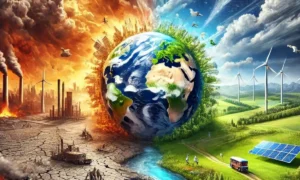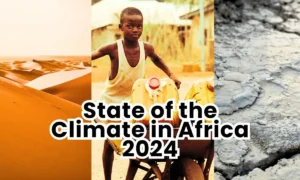Marine Pollution: Causes, Effects, and Solutions

Pollution of oceans has damaging effects on the marine environment. It has become a major global issue.
The marine environment has multiple benefits, including seafood, tourism, transport, navigation, and more.
Marine Pollution Definition and Types of Pollution
Marine pollution is the direct or indirect introduction of substances to the marine environment by human activities, resulting in adverse effects.
According to E.P. Odum (1971), pollution is “an undesirable change in the physical, chemical, and biological characteristics of air, water, and soil which affects human beings in various ways.”
According to National Geographic, “Marine pollution is a combination of chemicals and trash, most of which comes from land sources and is washed or blown into the ocean. This pollution results in damage to the environment, to the health of all organisms, and to economic structures worldwide.”
According to GEMET, Marine Pollution is “Any detrimental alteration of the marine environment caused by the intentional or accidental release of dangerous or toxic substances, such as industrial, commercial and urban waste water.”
Pollution can be of two types:
- Natural pollution can occur from natural hazards like volcanic eruptions, ultraviolet rays, radioactive decay, cosmic rays, gaseous emissions, soil erosion, etc.
- Manmade pollution is mainly attributed to human activities such as water pollution, air pollution, marine pollution, soil pollution, noise pollution, etc.
There are biodegradable pollutants that decompose or degrade by natural processes.
However, non-biodegradable pollutants can persist for a very long time when released into the environment. They don’t decompose at all or have a prolonged decomposition rate.
Sources and Causes of Marine Pollution
The dangers and sources of pollutants introduced to oceans can be identified in a variety of ways.
These effects include a reduction in seawater quality, impacts on marine life and activities, and hazards to health and the environment.
Marine pollution causes of water pollution are similar to those on land in general, but there are specific causes.
The pollution can originate from land or the sea.
- Municipal sewage: Waste and sewage from coastal towns are directly deposited into the sea.
- Agricultural run-offs: Fertilizers containing pesticides and herbicides are carried by rainwater to water bodies that eventually end up in the sea.
- Marine Oil Pollution: Oil is a major marine pollutant. The sources of oil pollution include street run-offs, lubricants used in machines, offshore oil exploitation, and drilling processes, oil escapes from boreholes in ocean floors, spillage from crude oil transportation, accidents and leaks of oil tankers and ships, etc. Stormwater carries petroleum and oil into rivers that end up in seas.
- Offshore exploration and extraction processes: Waste chemicals and toxic substances that include mercury, lead, PCBs, Poly Aromatic Hydrocarbons (PAH), dioxin, copper, nickel, etc., are also marine pollutants that pose significant effects on aquatic life and the environment.
The effects of oil pollutants in marine environments depend on oil type and its viscosity, quantity, distance covered, region, as well as water temperature, among others.
Other Marine Pollution Sources
Several toxic substances include oil, chemicals, pesticides, metals, and liquified natural gas from ships. When these ships face leakages and accidents, they can damage the marine environment.
In most coastal towns, effluents are discharged into the sea directly. These can also enter into coastal waters carried by rivers.
Due to natural and anthropogenic activities, dust particles, SO2, NO2, and CO are deposited into seas adding to marine pollution.
Atmospheric contamination has direct and indirect effects on the marine environment.
Also Read: Understanding Noise Pollution: Effects and Solutions
Global Implications of Marine Pollution
Approximately 8 to 10 million metric tons of plastic enter the ocean annually, according to the UNESCO Intergovernmental Oceanographic Commission, stating that plastic waste makes up 80% of all marine pollution.
Plastic does not degrade quickly; it might take hundreds of years to breakdown, often resulting in microplastics. Fish and other marine life can consume these microscopic plastic particles, which go up the food chain and impact living organisms.
Despite increased public awareness of plastic’s hazards pollution levels in our seas continue to rise.
Oceanic plastic pollution additionally contributes to marine species extinction, results in major health risks to both animals and humans, and greatly disrupts ecosystems.
There are global implications of marine water pollution. Some pollutants can influence atmospheric conditions.
Pollutants entering from rivers and streams into oceans can circulate in different coastal areas around the world.
Bacterial contamination in coastal regions has led to the closure of beaches, implicating economic losses.
80% of marine pollution originates from land-based activities, primarily nonpoint source pollution, which is caused by runoff from urban areas, farms, and timber harvests (NOAA’s National Ocean Service).
There have been considerate efforts to reduce, control, prevent, and treat water pollution. Modern technology and stricter laws and regulations have played a key role in doing so.
Effects of Marine Pollution
Alterations in the physical, chemical, and biological characteristics of water are known as water pollution. Undesirable changes in water characteristics are harmful to humans and aquatic life. Life on Earth is dependent on the availability of water.
Aquatic life forms require water with a fair amount of oxygen in it. This oxygen is a necessity for living organisms. It is generally called Biological Oxygen Demand (BOD).
Pollution of water leads to the reduction of BOD content in water, and the water becomes unfit for biological consumption.
Nitrate and phosphate compounds can cause excessive growth of algae when dissolved in water. Algae, when they die, are decomposed by microorganisms depleting dissolved oxygen in the water.
Apart from acid and salts, toxic metals such as lead and mercury can make water bodies unfit for living organisms, harming fish and plants.
Marine Pollution leads to health problems for aquatic life, coral reef decline, reduction in biodiversity, and disruption of natural ecological services.
Substances like oil, gasoline, pesticides, plastics, and cleaning solvents from industries, farms, households, etc., add toxins to aquatic systems.
| Source | Effect |
|---|---|
| Agriculture and Forestry Runoff | Oxygen level depletion |
| Sediment from land sources/mining | Sediment clogs in the grills if fished |
| Municipal sewage | Seafood contamination |
| Industrial effluents | Damages to aquatic life |
| Pesticides from farms | Effects on ecological services and aquatic life |
| Oil releases | Contamination kills larvae; higher contamination leads to the death of sea fish and plants |
| Litter, plastic waste, etc. | Disturbs the marine environment |
| Hot water from power plants | Kills corals |
Marine Pollution Control Measures
Sewage treatment plants can help reduce pollution in marine environments. This will lower the biological oxygen demand (BOD) of the finished product before it is released into the receiving waters.
Various levels of treatment including primary, secondary, or advanced methods might be applied based on the effluent types to be treated.
Primary treatment plants apply physical procedures including screening and sedimentation to remove contaminants that settle, float, or are too big to pass through standard screening equipment. This contains stones, sticks, rags, and other materials that might block pipes.
Secondary wastewater treatment and tertiary/advanced wastewater treatment are important processes in preventing marine pollution.
Many countries have reduced or banned the use of plastic. Reuse and recycling are great help in reducing the waste burden on oceans.
Additional Preventative Measures
- Proper sewage disposal and management in populated regions
- Use of scientific techniques in controlling the release of pollutants in catchment areas of rivers, streams, etc.
- Preventive measures to control the discharge of waste whether treated, partially treated, or untreated in water bodies
- Encouraging the use of septic tanks in individual households
- Large restaurants and hotels must use their own treatment plants and waste management systems
- Public, private sectors, NGOs, and governmental authorities need to interact, cooperate, and participate in keeping oceans safe from pollution.
- Reduce oil spillages and tanker accidents in seas.
- Building facilities for the purpose of recycling used oil.
Marine pollution is a major global issue that affects the environment, threatens marine life, impact global food production, and human health.
Oceans are polluted and their characteristics are altered by various sources such as industrial waste, e-waste, sewage, agricultural runoff, oil spills, and plastic debris.






